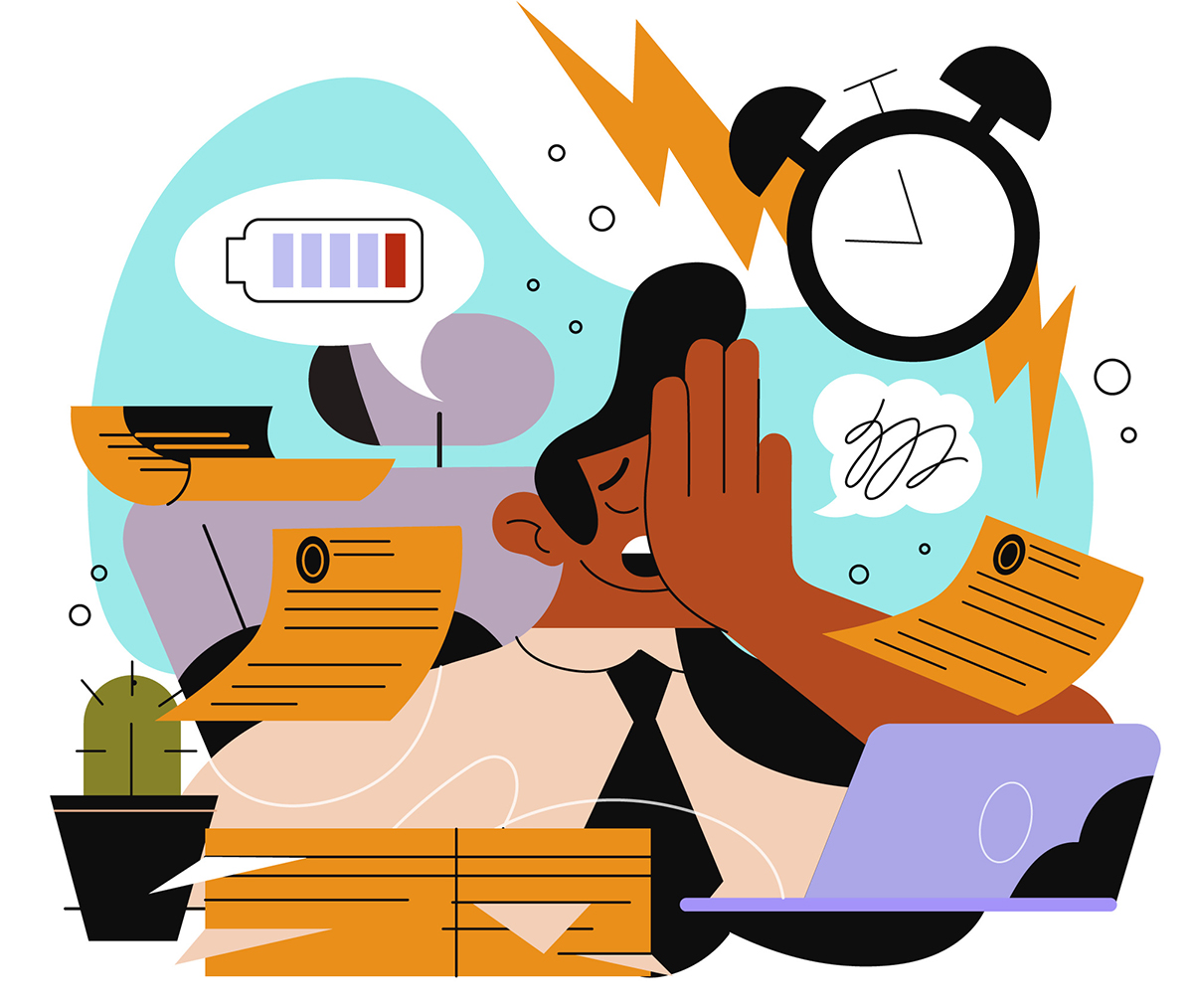The Link Between Employee Stress and Productivity
By Maria Forbes
August 21, 2020
The workplace is a leading source of stress for millions of people. According to the American Institute of Stress (AIS), in fact, it’s the third most common source of stress. While stress can affect employees in different ways, it often causes lower productivity levels.
As an employer, you should familiarize yourself with the link between employee stress and productivity. By understanding this connection, you can create a relaxing work environment that allows employees to maximize their productivity levels.
Lower Energy
When stressed, employees will usually have less energy. There’s a strong correlation between stress and energy levels. Stress causes a myriad of chemical changes in the body. Among others, it promotes the production and release of adrenaline and cortisol. As these chemicals begin to take over, they can sap an employee’s energy. With less energy, the employee’s productivity levels will drop. Employees must manage their stress so that it doesn’t sap their energy and, therefore, their productivity.
More Sick Days
Employees who suffer from regular or chronic stress tend to take more sick days than their counterparts. The AIS estimates that roughly 1 million employees miss work each day because of stress.
It’s rare for employees to have a perfect attendance record when working for an extended period. Employees will inevitably get sick or sustain an injury. Nonetheless, stress can weaken an employee’s immune system so that he or she is more susceptible to illnesses. As a result, stress may indirectly cause employees to take more sick days, in which case their productivity levels will drop.
Lower Motivation
Another way that stress can affect an employee’s productivity levels is by making him or her less motivated. Motivation is the precursor for productivity. When employees are highly motivated, they’ll feel an innate and instinctual desire to excel at their jobs. Lack of motivation, on the other hand, leaves employees with little or no desire to excel. They may show up to work, but they won’t put their best foot forward.
Stress can demotivate employees. Highly stressed employees are less motivated than their counterparts. They don’t have the same desire to push themselves, so their productivity levels drop.
Burnout
Stress can also cause burnout in employees, which in turn lowers their productivity levels. What is burnout exactly? It’s a mental state in which an employee feels overworked to the point where it adversely affects his or her productivity levels. In today’s high-paced corporate environment, many employees are eager to push themselves. Even if an employee is motivated though, he or she may experience burnout from working an excessive amount of hours or from simply working too hard. Stress can compound the effects of burnout while subsequently lowering employees’ productivity levels.
To learn more about burnout and how to prevent it in your company’s employees, check out this previous blog post.

Increased Turnout Rate
Stress can affect your company’s turnout rate. Employees are more likely to quit or otherwise exit your company if they are stressed. When an employee is stressed, his or her job satisfaction will decrease. The employee will no longer enjoy working at your company. Granted, some employees may stay simply to collect a paycheck, but others will leave to seek employment elsewhere. With a higher turnover rate, your company’s own productivity levels will drop.
It’s nearly impossible to achieve a 0% turnover rate. Assuming you measure it over an extended period — and your company has a moderately large workforce — some employees will quit. Allowing stress to go unchecked, however, will inevitably lead to a higher turnover rate that affects your company’s productivity. For high productivity, you must manage stress levels within your company’s workforce.
Tips to Create a Low-Stress Workplace
You can’t always prevent employees from experiencing stress. Stress is a natural bodily process that’s part of our fight-or-flight response. The good news is that there are ways to promote a low-stress workplace so that it doesn’t have a negative impact on employees’ productivity levels.
Here are a few tips to foster a low-stress workplace:
- Offer a health and wellness program to employees. A health and wellness program will provide employees with the tools they need to manage stress.
- Give employees paid time off. With paid time off, employees will have the opportunity to relax and unwind without worrying about missing a paycheck.
- Recognize employees for their hard work and dedication. Recognition motivates employees so that they are less stressed.
- Develop an employee appreciation program. An appreciation program, such as an employee-of-the-month program, can lower stress levels.
- Don’t overschedule employees. Employees are more likely to experience stress if they are overworked.
- Allow employees to take breaks periodically throughout the day. By taking regular breaks, employees won’t feel as stressed.
In Conclusion
Employees are bound to experience stress as some point in time. It’s a natural reaction to a perceived threat. Unfortunately, high stress levels can make employees less productive. It saps their energy, causes them to take more sick days, lowers their motivation, promotes burnout and increases the risk of employees quitting.




